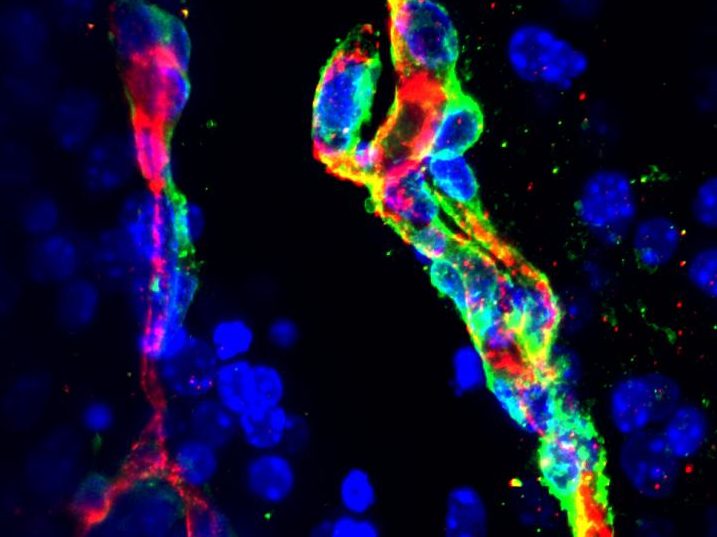Good communication is critical in any relationship. When communication is poor it has the power to threaten the very existence of a good bond. Blood vessels and the brain share a very important bond as blood vessels deliver oxygen and nutrients to all of the tissues and organs throughout the body, which is needed for the brain to function. The blood vessels that vascularize the central nervous system (CNS) is called the blood-brain barrier. The blood-brain barrier is a protective barrier that allows vessels to tightly regulate the movement of molecules, ions, and cells between the blood and the brain. Researchers from the Max Planck Institute of Immunobiology and Epigenetics have discovered that blood vessels can sense the metabolic state of neighboring neural cells in the brain and alter vascular function in response.
Their study, “Neural metabolic imbalance induced by MOF dysfunction triggers pericyte activation and breakdown of vasculature,” is published in Nature Cell Biology. Their findings are particularly important, as neural blood vessel breakdown is a characteristic feature of the onset of age-related diseases such as Alzheimer’s disease and vascular dementia.
“Mutations in chromatin-modifying complexes and metabolic enzymes commonly underlie complex human developmental syndromes affecting multiple organs. A major challenge is to determine how disease-causing genetic lesions cause deregulation of homeostasis in unique cell types,” the researchers wrote.
“Something has to tell neural cells that there are nutrients around and they should turn on the programs needed to process them,” stated Bilal Sheikh, lead author of the study. The scientists discovered that the epigenetic regulator MOF is needed for equipping neurons with the right metabolic enzymes in order to process fatty acids. “MOF goes to the DNA and switches on the genetic programs that allow cells to process fatty acids in the brain.”

“Our work shows that proper metabolism in the brain is critical for its health. A defective neural metabolic environment can induce vascular inflammation, dysfunction of the cells forming the blood-brain barrier, and increased permeability. What can follow is neural blood vessel breakdown,” stated Asifa Akhtar.
The study gives a better understanding of what is strengthening this bond between the brain and its blood vessels. How neural cells and blood vessels communicate in the brain illustrates how changes in the metabolic environment of one cell type in a complex organ can impact the function of surrounding cells. Their study may eventually lead to treatment therapies for Alzheimer’s disease affected by this bond.



